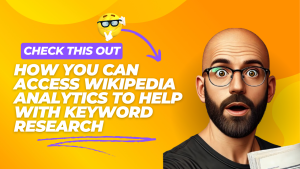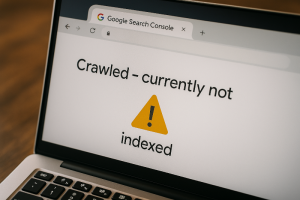All credit for this week’s note goes to Dorron Shapow. If you are not currently following him on LinkedIn, I would highly encourage you to do so. He shares some great tips and insights there. You will also find him participating regularly in The SEO Pub Slack channel.
Here is the link to Dorron’s LinkedIn profile: https://www.linkedin.com/in/dshapowseo/
And here is the link to get his full study we are going to talk about today: https://www.linkedin.com/feed/update/urn:li:activity:7285687322484903936/
I’m going to summarize his findings here, but I would highly encourage you to check out the full study Dorron shared.
Informational search intent is often reduced to basic queries like “What is SEO?” or “Who is the CEO of Google?” However, search behavior is far more complex. Google’s algorithm updates, such as BERT and MUM, have enhanced the ability to process multifaceted search queries, recognizing that users seek layered, nuanced answers beyond simple facts.
How Search Engines Process Informational Intent
Modern search engines interpret informational intent by analyzing:
- Multiple Intent Layers within a single query
- Different Depths of Information Needs
- Context and Semantics to align with user expectations
Users don’t think in rigid patterns—they seek engagement, solutions, and validation. Successful SEO content bridges this gap by solving problems and addressing psychological triggers.
The Problem with SEO Titles
Many SEO professionals optimize for algorithms, not humans, leading to:
- Zero-click searches dominating search results
- Google AI overviews and authoritative sites reducing organic clicks
- User-generated content (UGC) forums like Reddit and Quora taking over informational rankings
- A decline in organic traffic and engagement
To stand out, content must break away from generic “Me Too” titles and align with real user intent.
What the Study Found: Rethinking Informational Intent
A study of 1,000 top-ranking informational queries revealed that:
- Traditional SEO title formulas don’t determine rankings.
- Successful content follows specific patterns that align with deeper intent.
- Optimized titles should capture multiple intent facets, not just primary keywords.
13 Types of Informational Intent
Not all informational queries fit into a single bucket. The study categorizes them into 13 types:
- Tactical – Action-oriented (“How to rank faster”)
- Foundational – Simplifying complex topics (“What is semantic SEO?”)
- Platform-Specific – Niche-focused (“SEO for Shopify stores”)
- Comparative – Evaluating options (“Wix vs. WordPress for SEO”)
- Problem-Solving – Addressing pain points (“How to fix a broken sitemap”)
- Exploratory – Broad research (“What’s the future of AI in SEO?”)
- Validation – Confirming choices (“Is Yoast SEO worth it?”)
- Inspirational – Motivating content (“Success stories in local SEO”)
- Localized Intent – Location-based searches (“Best SEO agency near me”)
- Educational/Skill-Building – Learning something new (“SEO tips for beginners”)
- Future-Oriented – Predictive searches (“How SEO will change in 2025”)
- Contextual – Related concepts (“How SEO affects PPC campaigns”)
- ROI/Performance-Based – Results-driven queries (“How SEO increased our leads by 50%”)
Data-Driven Title Formulas That Work
The analysis of high-performing SEO titles revealed that most fall into specific ratios:
- 45% Foundational / 40% Tactical / 15% ROI-Driven
- 60% Foundational / 25% Tactical / 15% ROI-Driven
These formulas work because they:
- Provide a foundation (understanding of the topic)
- Offer actionable steps (how to execute)
- Validate why it matters (ROI or performance)
**Example of an optimized title Dorron included was:
🔹 Instead of “How to Change a Tire”
✅ “How to Change a Flat Tire in Under 15 Minutes Using Basic Tools”**
- Foundational: Tire Change Method (basic understanding)
- Tactical: Using Basic Tools (step-by-step actions)
- ROI: Under 15 Minutes (time efficiency)
Why This Approach Matters
SEO has evolved. Google does not treat title length as a direct ranking factor but rather as a visibility and engagement tool. Optimizing for keyword placement, context, and user engagement is now essential.
🔹 Titles that drive real performance include:
- “Why Your E-Commerce SEO Strategy Isn’t Driving Sales” (Problem-Solving)
- “The Local SEO Tips Every Small Business Needs to Know” (Localized Intent)
- “What Really Drives E-Commerce Customers to Click Through” (Contextual)
- “How Content Marketing Drives Long-Term SaaS Growth” (ROI/Performance-Based)
Key Takeaways
- Informational search is far more nuanced than traditional keyword matching.
- High-ranking content aligns with multiple intent layers.
- SEO titles must be designed for both human engagement and search visibility.
- Zero-click searches and AI-driven results make user-focused optimization more important than ever.
📌 Final Thought:
SEO professionals must move beyond “Top 10 Things You Need to Know” titles. The future of search belongs to smarter, intent-driven content that resonates with real users.


